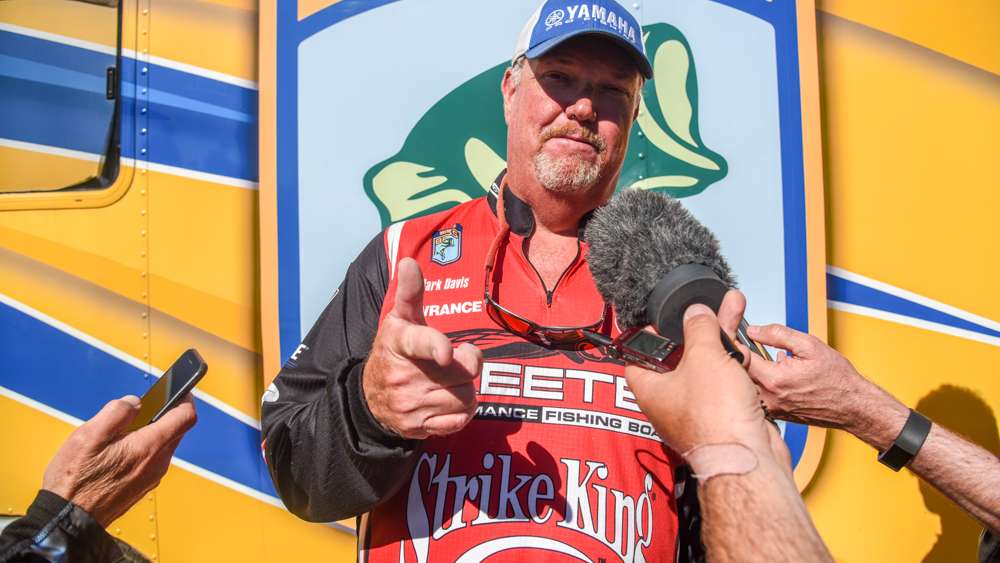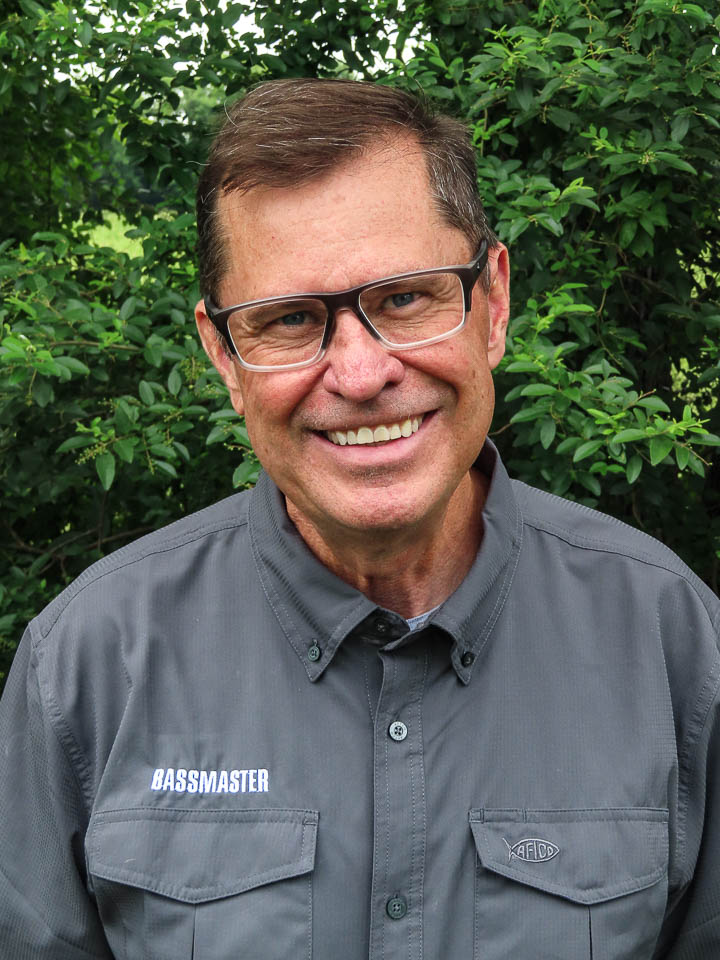
RIDGELAND, Miss. — Ross Barnett Reservoir is filled with 33,000 acres of water and even with all of it, the pros are saying it fishes “small.” Such is the case thus far at the Academy Sports + Outdoors Bassmaster Elite at Ross Barnett.
On The Rez, as the locals call it, “small” relates more to fishable water under the prevailing conditions than it does size of the lake. Then divide that fishable water by 109 top bass anglers.
Small or not, the average angler faces the above scenario on highly pressured lakes, especially those in urban areas where choice areas get pounded with lures.
So how do the pros fish under these conditions? Here are some clues.
Playing defense
“You’ve got to play offense and defense,” said Marty Robinson, who after Day 1 has 18 pounds for ninth place.
The offense part is easy. Go with a pattern, the game plan that best suits your style of fishing and is productive under the prevailing conditions. Playing defense adds another dimension to the plan.
“I will definitely keep my eyes on the other anglers in my area, try not to fish behind them,” he continued. “Seeing someone moving in on the sweet spot causes me to get into casting position sooner than later.”
Call it scoring position. Robinson does not advocate cutting an angler off by adding juice to the trolling motor. He simply is fishing more strategic.
“Normally, it’s you against the fish,” he explained. “Under these situations you add the other anglers into the competition, too.”
Getting the right mindset
“I take on a different mindset when other anglers are concentrated in my area,” said Dave Lefebre, in seventh place with 18-4.
In another life Lefebre has a lot of experience in that scenario. Lefebre is a former experienced guide on Lake Erie, where smallmouth concentrate in great numbers on offshore rockpiles.
“The mindset is realizing you are going to be fishing around people, you are going to get cut off, and most of all, you can’t get mad,” he said.
To shortcut those mental frustrations he simple recognizes the nuances as part of the game.
“With those frustrations off the table I set out to thinking deeper than normal,” he said. “I try and outsmart the other angler by drilling down and thinking what I can do different.”
Get away
Mark Menendez, currently in 11th with 17 pounds, has decades of experience fishing “small” lakes. His answer to the question hinges on a high skill level of dealing with pressured areas.
“I try and get away from everyone, even if the pattern means fishing one isolated piece of cover and moving on to the next,” he said.
The object is finding enough areas to form a rotation of spots. Junk fish the areas based on the best lure for the cover and keep running.
The hidden bonus is escaping from the crowds might just lead to an untapped, more productive fishing area.
Get there first
Fletcher Shryock will take less productive water, with fewer fish, in order to get away from pressured areas. That compromise is logical since bass are reactive to pressure and will shy away.
“It’s definitely a mind game with the pressure, because you’ve got to keep rolling and not hold back,” he said.
Shryock will not hesitate to fish his best areas first, even if they produce later in the day, for obvious reasons.
“It’s more about calculating when you think other anglers will be on that area, and going ahead and fish it,” he said.
Play nice, work for perfection
Mark Davis, in third place with 20-10, believes that lure presentation and casting accuracy demand a high level of priority.
“Today was a great example of how this is a game of inches,” he said. “The way my fish, well, our fish, were positioned made it all about the line of retrieve.”
Translated, the game of inches and line of retrieve are one in the same. How the lure tracks across a fish-holding piece of cover makes all the difference. The cast gets wasted if the retrieve tracks the lure just inches off the sweet spot.
“When sharing water you don’t have the advantage of moving the boat into position so the lure tracks just right,” he added. “That is the risk you take.”
Davis shared water with Keith Poche and watched him catch 20-2 off the spot.
“My philosophy is you’ve got to work together, even though that might be hard, to help the other guy,” he said.
“What it comes down to is that you are both working against the fish, not necessarily each other.”
What’s the bottom line?
Realizing you are competing against fish and sometimes humans. And that sportsmanship goes a long way in everyone’s mutual goal: To catch fish.

